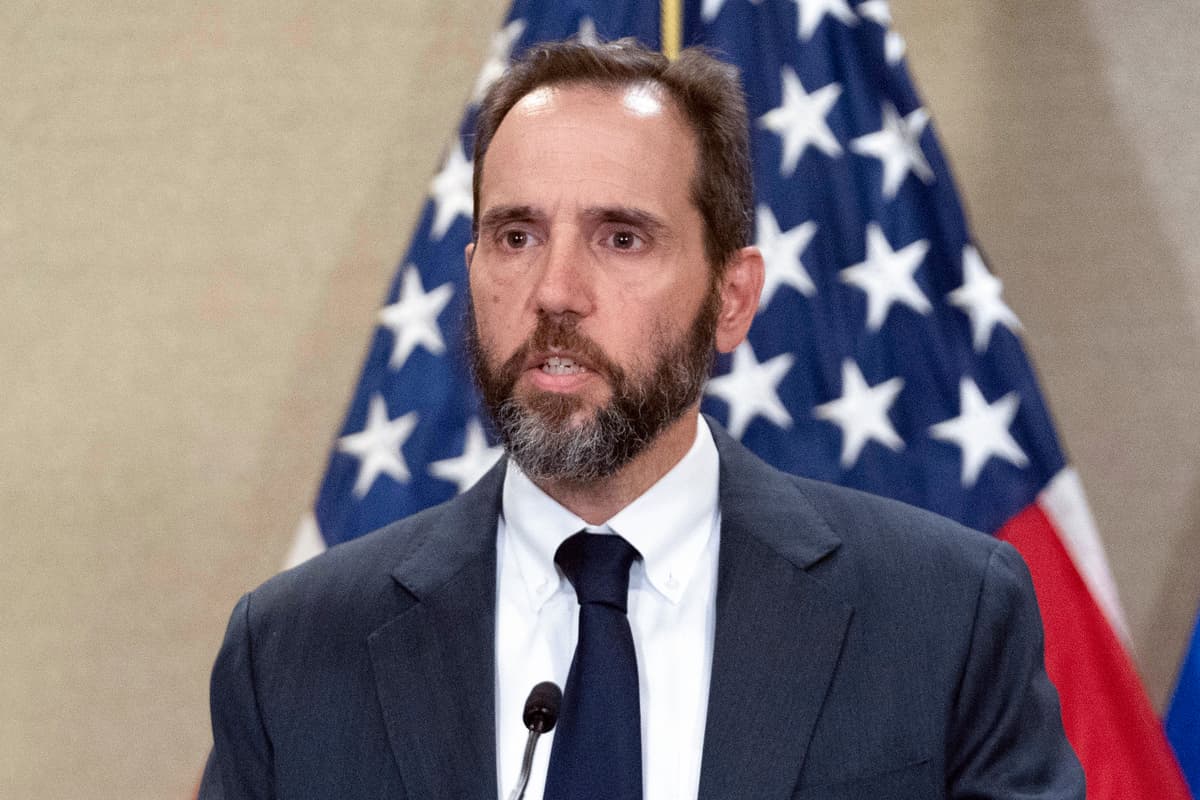Jack Smith Accuses Trump of ‘Half-Hearted’ and ‘Underdeveloped’ Arguments as Prosecutor Braces for His Response to January 6 Dossier
With three weeks to go before the election, the 45th president faces an inflection point in his effort to limit public access to the flood of evidence against him.

The spotlight will on Thursday and Friday swivel to the response of President Trump’s legal team to Special Counsel Jack Smith’s immunity opus that argued that the 45th president ought to stand trial like any citizen accused of crimes.
The end of this week has come into focus as an inflection point in the election interference case against Trump, which is gathering steam in the weeks before a presidential election that appears headed for a photographic finish. The former president calls the special counsel’s report a “monstrosity” and a “false hit job.”
Mr. Smith on Wednesday kept up the heat on the 45th president, filing a motion to Judge Tanya Chutkan arguing that one of the criminal charges against Trump, for obstructing an official proceeding, ought to stand despite the Supreme Court having narrowed its reach last term. The law was originally drafted as part of the Sarbanes-Oxley Act, which sought to deter financial fraud.
The special counsel writes that Trump “ignores entirely that the case against him includes allegations that he and his co-conspirators sought to create and use false evidence—fraudulent electoral certificates—as a means of obstructing the certification proceeding.” The Department of Justice charged more than 250 January 6 defendants with violating this statute. Many of them have received long prison terms, some of them handed down in Judge Chutkan’s courtroom.
Mr. Smith accuses Trump of mounting “half-hearted,” “faulty,” and “underdeveloped” arguments that ignore the government’s accusation that he was involved in the “creation of false evidence” when he schemed to generate “fraudulent certificates, thereby obstructing the certification proceeding.” The January 6 rioters, Mr. Smith argues, did not engage in documentary obstruction.
Now, Trump has his chance to respond. Judge Chutkan has ordered that his reply to Mr. Smith must be docketed by Thursday. She has given Trump the same extended page limit that Mr. Smith exploited to craft a 165-page document, quadruple the usual length allotted for pre-trial briefs, that described Trump’s conduct on January 5 in detail. The special counsel used those pages to press the argument that Trump “must stand trial for his private crimes as would any other citizen.”
Taken together, Mr. Smith’s second indictment and the immunity brief amount to a double-barrelled argument for trying — and convicting — Trump for the events of January 6, 2021, and associated schemes. The latter also functions as a species of an October surprise, or a closing argument in the court of public opinion. Once the Supreme Court stymied his push for a trial before the election, it appears as if the special counsel pivoted to attempting to get as much evidence unsealed as possible before the vote.
In that effort he has found a willing partner in Judge Chutkan, who has repeatedly ruled in favor of the government in respect of how to proceed in the wake of the Supreme Court’s decision in Trump v. United States that official presidential acts are presumptively immune. She has determined that unsealing this evidence, albeit with redactions, is not injurious to Trump’s legal rights. She denies politics plays a role in her courtroom.
That process of unsealing will continue on Friday — unless Trump can stop it. Judge Chutkan has ruled that the appendix to Mr. Smith’s brief is to be published on Friday in partially redacted form. Trump has requested “no further disclosures” of “so-called evidence” be publicized because it has been “unlawfully cherry-picked and mischaracterized.”
Judge Chutkan, in scheduling the appendix’s release, wrote that Trump’s “concern with the political consequences of these proceedings is not a cognizable legal prejudice.” The jurist, though, allowed Trump a window to “evaluate litigation options.” That window closes at the end of this week, when the appendix will be released if Trump cannot cajole a higher court into staying Judge Chutkan’s hand. A writ of mandamus is the most likely option.
Trump’s predicament is worsened by the case’s unusual procedural posture. Usually, pre-trial motions, like requests for dismissal, are first docketed by the defendant. The government is then offered the opportunity to respond. Judge Chutkan, though, acknowledges this case’s “unusual procedural posture,” a product of it being returned to her courtroom with a mandate to determine which of the allegations in Mr. Smith’s indictment are official and which are unofficial — and therefore bereft of immunity.
Mr. Smith persuaded Judge Chutkan that the most expeditious way to fulfill that command was for him to file his brief first, rather than second. Trump proposed that she first adjudicate issues relating to the special counsel’s discovery obligations, which the 45th president contends are sprawling. He also argued that the release of Mr. Smith’s brief at this juncture would not only be “politically motivated,” but also impair his right to an “impartial jury.”

